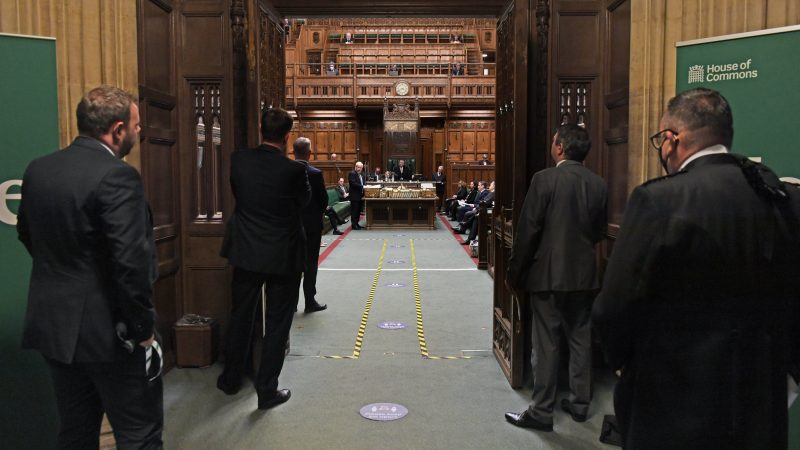
The Labour Party is set to force parliamentary votes to protect workers’ rights in the wake of the end of the Brexit transition period and demand that ministers reverse plans to force local authorities to increase council tax by 5%.
Ahead of the next opposition day debates on Monday, the party revealed that it has tabled a motion calling on the government to rule out changes to the 48-hour working week, rest breaks at work, or holiday pay entitlement.
Commenting on the motion and the challenges facing workers in the pandemic, Labour frontbencher Andy McDonald said: “In the middle of a pandemic and an economic crisis, ministers are considering ripping up workers’ rights.
“This could see people across the country worse off, losing out on holiday pay and working longer hours. Scrapping the 48-hour working week cap could mean many key workers feel pressured to work excessive hours.
“The government should be focused on securing our economy and rebuilding the country, not taking a wrecking ball to hard-won rights. The government’s true colours are on full display once again and it’s clear their priorities couldn’t be further from those of workers and their families.”
The Shadow Secretary of State for Employment Rights and Protections added: “On Monday MPs across the House will have a chance to vote on the side of working people and protect our key workers.”
Labour and trade unions declared last week that they would fight government plans to rip up UK workers’ rights following reports of a proposed package of deregulatory measures following the end of the Brexit transition period.
The plans include ending the 48-hour working week, “tweaking” rights to rest breaks at work, not including overtime pay in holiday pay entitlement calculations and scrapping the need for businesses to log daily reporting of working hours.
Labour has also put forward a motion demanding ministers back down on plans to raise the average council tax bill by £93 at a time when it says people are “worried about the future of their jobs and how they will get through the next few months”.
Commenting on the increase, Labour’s Steve Reed argued: “The Conservatives’ council tax rise will hit families right at the very time millions are worried about the future of their jobs and how they will get through the next few months.
“With Britain having experienced the worst recession of any major economy this is simply the wrong time for this tax rise. This government should not be making families pay the price for their mishandling of the Covid crisis and their broken promises to support councils.”
The Shadow Communities and Local Government Secretary added: “The Prime Minister must cancel this hike. If he refuses, Conservative MPs will have the opportunity to vote with Labour to protect family incomes and secure our economy.”
The debate follows an appeal from Keir Starmer earlier this month for the Prime Minister to properly support local authorities and abandon the proposal, as the party leader told the public that Labour would be “the party of the family”.
While local authorities are not obliged to increase council taxes, they have experienced significant pressure on social care budgets and have been hit hard by the pandemic, which has seen people struggle to pay their bills.
The government unveiled the policy for English councils in December last year. Labour highlighted at the time that the increase is “over twice the rate of inflation” and council tax is “regressive” as it raises less money in poorer areas.
There are 20 opposition days per parliamentary session, which allow opposition parties to set the agenda. Labour used the most recent opposition day debates earlier this week to table motions on free school meals and Universal Credit.
Both motions passed after Boris Johnson accused the opposition party of “playing politics” with its opposition day motions and instructed Tory MPs to abstain. Opposition day motions are not binding on the government.
The Prime Minister described the non-binding vote on Universal Credit as a “stunt”. But Labour has repeatedly used opposition day votes to highlight difficult issues for the government – such as, in October, the extension of free school meals.
The resulting backlash, which saw campaigners such as footballer Marcus Rashford, local councils and businesses stepping up to provide food for children over the school holidays, resulted in a later U-turn for Downing Street.




More from LabourList
Government abandons plans to delay 30 local elections in England
‘The cost of living crisis is still Britain’s defining political challenge’
‘Nurses are finally getting the recognition they deserve’